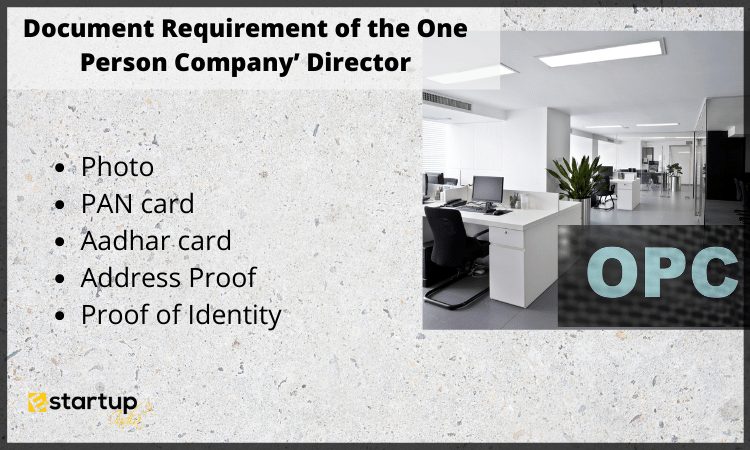The One-Person Company is a brand-new idea created by the 2013 Companies Act! (OPC). There must be at least 2 Directors and 2 Members in a Private Company, but there must be at least 3 Directors and 7 Members in a Public Company. Until recently, a company could not be formed by a single individual. However, you can now have OPC Registration. In this article, you will understand all about one person company (OPC) Incorporation.
What is One Person Company (OPC) Incorporation?
OPC is a type of business that is owned and operated solely by a single person. A single proprietorship was the only option for an individual who wished to start a business because two directors and two members were required to have a private limited company registration.
Only one director and one shareholder are required to start a business, according to Section 2(62) of the Company’s Act 2013. This type of corporation has a lower compliance burden than a private firm.
According to the 2013 Companies Act, a company can be formed by a single individual with a single shareholder and a single director. You can be both the director and a member of the same organization. As a result, a one person company registration can be formed by a person who is either a resident or a non-resident of India and wishes to incorporate his or her business in India individually.

Eligibility Criteria for One Person Company Registration
- Minimum one director, one shareholder, and one nominee
- Director Identification Number (DIN) of all the Directors
- DSC or Digital Signature Certificate of all Directors and shareholders
Advantages of One Person Company Registration
As an independent legal organization, the OPC is able to conduct its own affairs. The OPC is a distinct legal body that provides protection for the sole proprietor. The member’s personal liability is limited to the value of his or her shares, and he or she is not responsible for the company’s failure. Creditors may thus sue the OPC rather than any individual member or director.
When it comes to finding investors and funding for OPC, there are a variety of avenues open to it because it is a privately held corporation. The banks and financial institutions prefer to lend money to registered corporations rather than sole proprietorships. As a result, obtaining capital is made simpler.
A number of exemptions are available to the OPC under the Companies Act, 2013. The cash flow statement does not need to be prepared by the OPC. The books of accounts and yearly returns need not be signed by the company secretary, but only by the director.
One member and one nomination are all that is needed to form an OPC, making it a simple process. As a member, you can also serve as the director. OPCs must have a minimum paid-up capital of Rs.1 lakh, but no minimum paid-up capital is required. This makes incorporation easier than for other types of businesses.
To keep things simple, just one person needs to set up and run the OPC. A quick and straightforward decision-making procedure is available. Only one person has to be present at the meeting to sign off on both regular and extraordinary resolutions. Because there is no internal disagreement or delay, operating and managing the firm is a quick and easy process.
Even if just one person is a member of the OPC, the organization will continue to exist. The sole member of the OPC must nominate a nominee while integrating the OPC. In the event of the member’s demise, the nominee will assume control of the business.
The downsides of OPC
OPC is well-suited to the structure of a small firm. The OPC can only have one member at any given time. OPC is unable to raise additional funds by adding more members or shareholders to its board of directors. As a result, new members cannot be joined to the company as it grows and expands.
The OPC is prohibited from engaging in non-banking financial investment operations, such as purchasing stock in any company. Section 8 of the 2013 Companies Act prevents it from becoming a charity.
Ownership and management will not be clearly separated because there will be just one member. All decisions must be taken and approved by the lone member. This might lead to unethical commercial actions since the boundary between ownership and control is blurred.
Is there a tax benefit to establishing an OPC?
An OPC has no benefit over any other kind of corporation in terms of taxation. MAT and Dividend Distribution Tax (DDT) are applicable as they would be to any other type of business, and the tax rate is set at 30%.
The basic mandatory compliance comprises:
- At least one Board Meeting in each half of the calendar year and the time gap between the two Board Meetings should not be less than 90 days.
- Maintenance of proper books of accounts.
- Statutory audit of Financial Statements.
- ITR Filing of business income every year before 30th September.
- Filing of Financial Statements in Form AOC-4 and ROC Annual Return in Form MGT 7.
Also, require any other guidance with respect to Company Formation please feel free to contact our business advisors at 8881-069-069.
Download E-Startup Mobile App and never miss the latest updates relating to your business.
